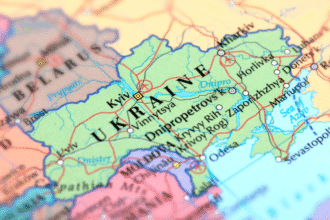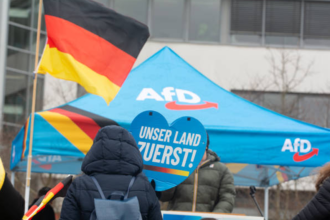In his first public speech, recently appointed Catholic Church leader Pope Leo XIV makes his stance clear: the need for world peace. As the globe struggles with continuing crises such as the war in Ukraine, the carnage in Gaza, and the long-standing tension between India and Pakistan, an urgent cry for peace arrives. Emphasizing the importance of unity, communication, and diplomatic action to help address conflicts endangering world security, his message is both relevant and required.
Pope Leo XIV expressed great concern for the lives lost and the damage inflicted by wars all around in his first speech from the St. Peter’s Basilica balcony. “I carry inside my heart the suffering of the beloved Ukrainian people,” he said. His comments echoed not only from Ukraine but also from the humanitarian crisis in Gaza and the unstable circumstances in South Asia. Pope Leo XIV exhorted international leaders, people, and organizations to act before more lives are lost and more communities are split apart by stressing global peace.
Why Is Global Peace Most Important Right Now?
There has never been a greater need for world peace. The world of today is more linked than it has ever been, and the consequences of local strife go much beyond the boundaries of the countries immediately engaged. For example, the continuing conflict in Ukraine affects not only Russia and Ukraine but also geopolitics, the world economy, and energy supplies. Likewise, the conflict in Gaza throws off the Middle East and influences other nations as well as the world community.
The demand for world peace made by Pope Leo XIV occurs at a pivotal moment when hostilities had the potential to extend across more extensive territory. He highlighted the terrible fact of our present times, in which we are seeing a fractured third world war rather than conflicts as isolated catastrophes. He underlined that although the great catastrophe of the Second World War passed more than 80 years ago, the world is once more struggling with little regional disputes that could wipe off whole countries.
As Pope Leo XIV eloquently put it, the effects of these wars transcend the instant devastation. War causes extensive economic unrest, population dislocation, and a humanitarian disaster, compromising millions of innocent lives. Psychological trauma, disturbed societies, and declining confidence between countries constitute the long-term harm. These consequences go beyond those immediately engaged in the battle; they spill over and cause instability that affects surrounding areas as well as perhaps all around the world. Global peace is, therefore, not only a question of diplomacy; it is also necessary for the preservation of the Earth. Read another article on First American Pope Leo XIV
How Might Leaders Promote World Peace?
Still unresolved is how leaders promote international peace in a society so split by strife. Adoption of diplomacy, communication, and respect for international laws will help to find the solution. World leaders have to accept the obligation to give peace-building top priority and apply their power for the benefit of all people, le as Pope Leo XIV advised.
Diplomacy over Conflict
Choosing diplomacy over military intervention is one of the main ways leaders may promote world peace. While discourse presents the chance for peace and cooperation, history has demonstrated that war frequently results in more pain and destruction. Pope Leo XIV underlined the need to use diplomatic channels to solve the underlying reasons of conflict instead of letting tensions turn into full-fledged wars.
For instance, although the crisis in Ukraine, which has now lasted for several years, might appear insurmountable, international diplomacy can still help to negotiate a peace solution. Although both parties have firmly established their positions, world powers can use diplomatic channels to promote ceasefires, humanitarian relief, and the ultimate end of conflict. Likewise, in Gaza, where decades of bloodshed have erupted, there is yet a window for negotiated settlement.
Globally Cooperation
Global peace also depends critically on international cooperation. Pope Leo XIV made very evident in his statement that one country acting alone cannot bring about peace. Through regional coalitions, various diplomatic venues, and international institutions like the United Nations (UN), nations have to cooperate. These groups have the knowledge and tools to arbitrate disputes, help negotiations go forward, and offer individuals in need humanitarian relief.
For instance, the United Nations has been instrumental in enabling humanitarian aid campaigns in areas devastated by conflict as well as ceasefire agreements. But as Pope Leo XIV noted, it is up to international leaders to give the political will and backing needed to make these institutions successful. Countries must so abandon their own interests and pursue a shared good.
Civilians’ Part in Promoting Peace
The teaching of Pope Leo XIV further underlined how states cannot bear the whole responsibility for world peace. A peaceful planet also depends much on its citizens. From grassroots campaigns to worldwide advocacy movements, people from all walks of life have to come together to support peace efforts. Whether via supporting peaceful legislation, interfaith discussion, or humanitarian aid to those impacted by violence, the Pope’s comments are a call to action for anyone to be agents of peace.
The exhortation for world peace by Pope Leo XIV underlines how personally peace starts. Demanding peace, supporting diplomatic initiatives, and fostering a culture of tolerance and respect among people can help to build the surroundings required for a long-lasting solution.
What part, in global peace, does faith play?
For Pope Leo XIV, world peace is much enhanced by faith. Leading the Catholic Church, his message emphasizes the need for spiritual values in the healing process from conflict. Pope Leo XIV exhorted those of religion from all backgrounds to pray for peace and to assist initiatives maintaining human dignity. “May a ceasefire immediately come into effect,” he said, exhorting both world leaders and people everywhere to behave with compassion and unity.
Long playing a key role in peace-building, faith communities’ leadership under Pope Leo XIV indicates that religious organizations should keep participating in discussion, conflict resolution, and peace advocacy. Reconciliation can be greatly inspired by faith, which also offers the moral structure required to go past fear and hostility.
In essence, a road toward enduring peace
Pope Leo XIV’s demand for world peace is not just a plea but also a call to action for governments, businesses, and people everywhere. As the head of the Catholic Church, the Pope’s first public speech makes clear that peace is a pragmatic need rather than a utopian goal. Leaders must decide diplomacy over military conflict, international cooperation over isolation, and respect for human dignity over self-interest if we are to reach world peace.
Pope Leo XIV tells us that although wars still rage in our world, global peace is achievable—but it will need coordinated effort from everywhere. The road to peace calls for action, dedication, and unity whether by diplomacy, global cooperation, or the moral obligation given by faith.
We have to pay attention to the Pope’s message going forward and cooperate to make sure that peace transforms from a hope into a reality for everybody.








